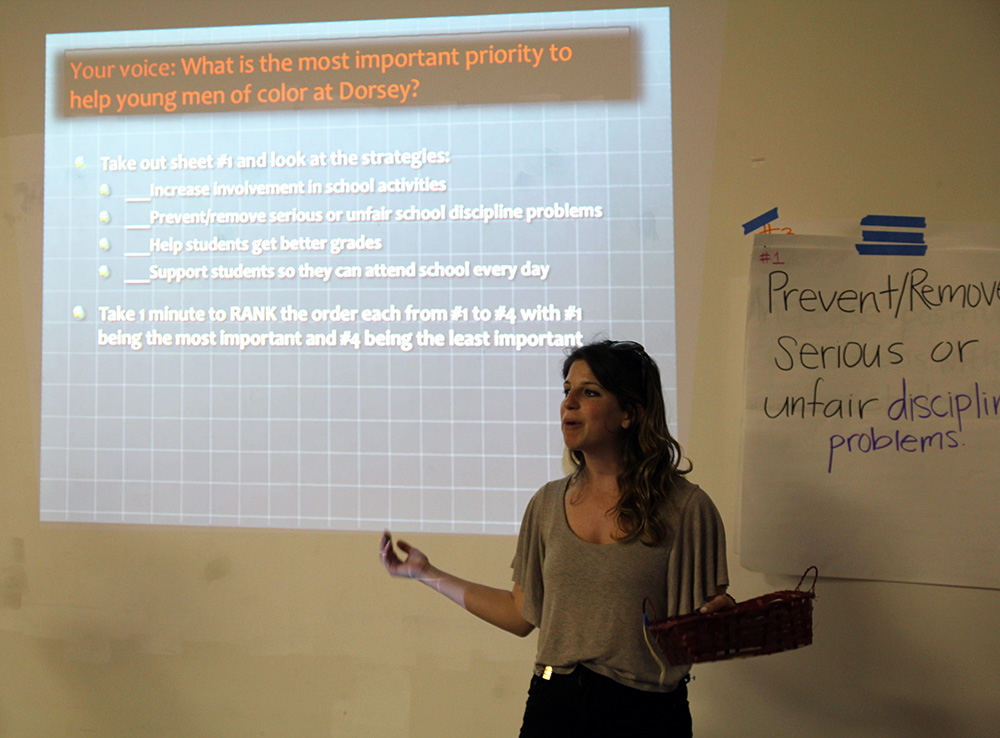
Community Based Participatory Research
Our research and evaluation approach follows the principles and spirit of community-based participatory research (CBPR) (Israel et al., 1998). Research that is participatory, culturally relevant, collaborative and flexible results in meaningful work products of lasting value to all stakeholders. These processes prioritize the voice of the community in all aspects of the evaluation process, and are particularly useful in working with communities whose voices have historically been excluded by and/or overlooked. Involving community members and stakeholders in all aspects of health promotion and prevention from conceptualization to implementation—is recognized as an effective strategy for sustainably addressing health disparities (Minkler & Wallerstein, 2003; Viswanathan et al., 2004), especially in low-income communities of color (Grills et al., 2014). The PARC team and partners have a longstanding commitment and extensive experience conducting CBPR on a national and local scale with communities of color, including with specific populations in CA.
The PARC operative values that guide our work include our commitment to:
- Shared Vision. A common agenda and shared understanding of evaluation goals and actions.
- Inclusiveness. Engaging diverse stakeholders & community members in all aspects of the evaluation.
- Collaboration. Joint efforts and willingness to share decision-making
- Flexibility. Ability to address the unique nature and evolving circumstances of the communities we are working with
- Empowerment. Increase evaluation and research capacity of underserved communities of color to foster improvement & self-determination
- Cultural Responsiveness. Strengths and needs of the communities served by our evaluations viewed within context of their cultural, linguistic, organizational, community, and historical lens
Social-Cultural-Ecological Framework

Considerations of culture, context, methodology, and equivalence undergird PARC's evaluation philosophy, praxis, and approach to our work. PARC frequently utilizes a public health perspective supported by a social ecological framework. It provides a lens for developing a more nuanced understanding of the relationship between the evaluation issue(s) under investigation and related, multi-level social and environmental factors (Bronfenbrenner, 1979; Unger, 012; Umemoto et al., 2009). This model includes risk and protective factors at several levels including individual, family, peer, school, community, and societal—that influence community health and wellbeing.
PARC couples their grounding of evaluations in the ecological framework with insights offered by research highlighting the importance of considering culture (Marsella, 2009) and the simultaneous effects of multiple social identities (e.g., intersectional models of social disadvantage—Collins, 1999; Crenshaw, 1995). Culture is relevant to psychological theory and practice because it provides the foundational frames for developing worldviews, interpreting reality, and acting in the world (Harrell, 2015). It draws our attention to the significance of the meaning-making function of culture in psychological and preventive interventions (Mattis, 2002). At the same time, one must be careful of overgeneralizations with respect to culture. There is no reason to assume uniform adherence to cultural socialization processes wherein every individual adopts or expresses an entire system of cultural patterns. "…while a group of people may share exposure to the same cultural system, particular elements of any cultural system may be embraced, internalized, and expressed differently. Intragroup variability is an inevitable result of the numerous contextual and individual influences on human behavior." (Harrell, 2015, p. 19).